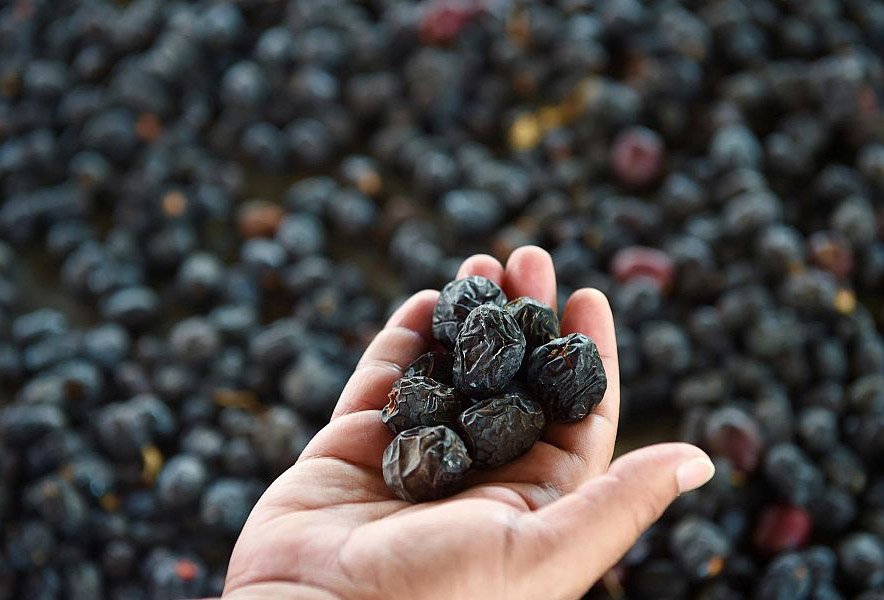
Kurma Ajwa: Price Impact of Imports for Malaysia
The Exquisite Kurma Ajwa
Kurma Ajwa, known for its exceptional quality and unique taste, is a prized variety of dates. Revered for its religious and cultural significance, it holds a special place in Islamic traditions and is highly sought after by Malaysian consumers. However, the final price of Ajwa dates in Malaysia is influenced by various factors, including import costs and transportation expenses.
The Significance of Ajwa dates
1. Islamic Traditions
Ajwa dates carry immense importance in Islamic traditions, particularly during the holy month of Ramadan and other religious occasions. It is believed to be the variety of dates that Prophet Muhammad (peace be upon him) frequently consumed, making it highly revered among Muslims. The rich, dark fruit is considered a symbol of blessings and is often consumed to break the fast during iftar.
2. Nutritional and Medicinal Value
Beyond its cultural and religious significance, Ajwa dates offer numerous health benefits. It is known to be rich in essential nutrients, including fiber, potassium, and antioxidants. The dates are believed to have medicinal properties and are often used in traditional remedies for digestive issues, heart health, and overall well-being.
Factors Affecting the Price of Kurma Ajwa in Malaysia
1. Import Costs
Importing Ajwa dates involves several costs that contribute to the final price for Malaysian consumers. These costs include sourcing dates from their country of origin, complying with import regulations, customs duties, and taxes. The quality and availability of Ajwa dates can also impact import costs, as premium varieties often command higher prices.
2. Transportation Expenses
Transporting Ajwa dates from its country of origin to Malaysia incurs transportation expenses, which further affect the price for consumers. Factors such as distance, shipping methods, and fuel prices can influence transportation costs. Additionally, the need for proper packaging and handling to maintain the dates’ quality during transit adds to the overall expenses.
3. Market Demand and Supply
The demand and supply dynamics of Ajwa dates in the Malaysian market play a crucial role in determining its price. Fluctuations in consumer demand, seasonal variations, and the availability of stock can impact the pricing. Limited supply or increased demand may lead to higher prices, while larger quantities and lower demand might result in more competitive pricing.
The Import Process and Its Impact on Availability and Affordability
1. Sourcing and Quality Control
Importing Ajwa dates involves carefully sourcing the dates from reputable producers to ensure their authenticity and quality. Stringent quality control measures are implemented to maintain the premium standards of Ajwa dates, ensuring that Malaysian consumers receive the finest fruit.
2. Logistics and Distribution
Efficient logistics and distribution networks are crucial for timely and cost-effective delivery of Ajwa dates to Malaysia. Proper handling, storage, and transportation practices are employed to preserve the dates’ freshness and quality throughout the journey. These logistical processes impact the availability and affordability of these dates in the local market.
3. Retail and Pricing Strategies
Once they reach Malaysian shores, it undergoes further distribution and retail processes. Importers, wholesalers, and retailers play a role in determining the final price based on factors such as import costs, transportation expenses, and market demand. Various pricing strategies may be employed to make Ajwa dates accessible to a wide range of consumers.
Conclusion
The final price of Kurma Ajwa for Malaysian consumers is influenced by import costs and transportation expenses. While these dates hold significant importance in Islamic traditions and offers exceptional taste and health benefits, these factors contribute to its pricing. Understanding the import process sheds light on the availability and affordability of Ajwa dates in the Malaysian market.
Key Highlights:
– Kurma Ajwa is a premium variety of dates.
– Import costs and transportation impact the final price for Malaysian consumers.
– Kurma Ajwa holds significant importance in Islamic traditions.
– Understanding the import process helps explain the availability and affordability of Ajwa dates.